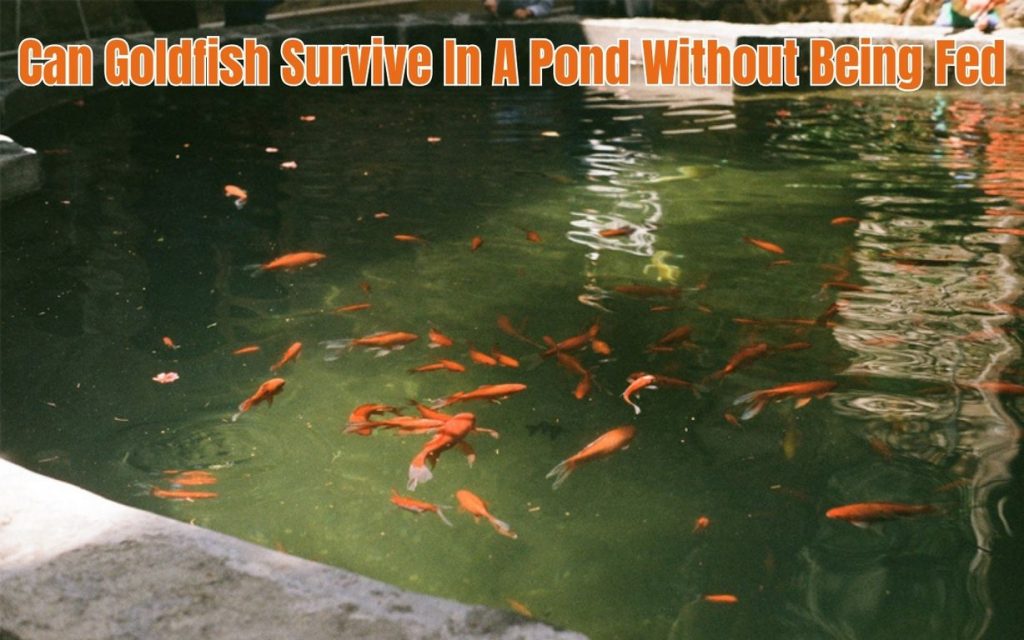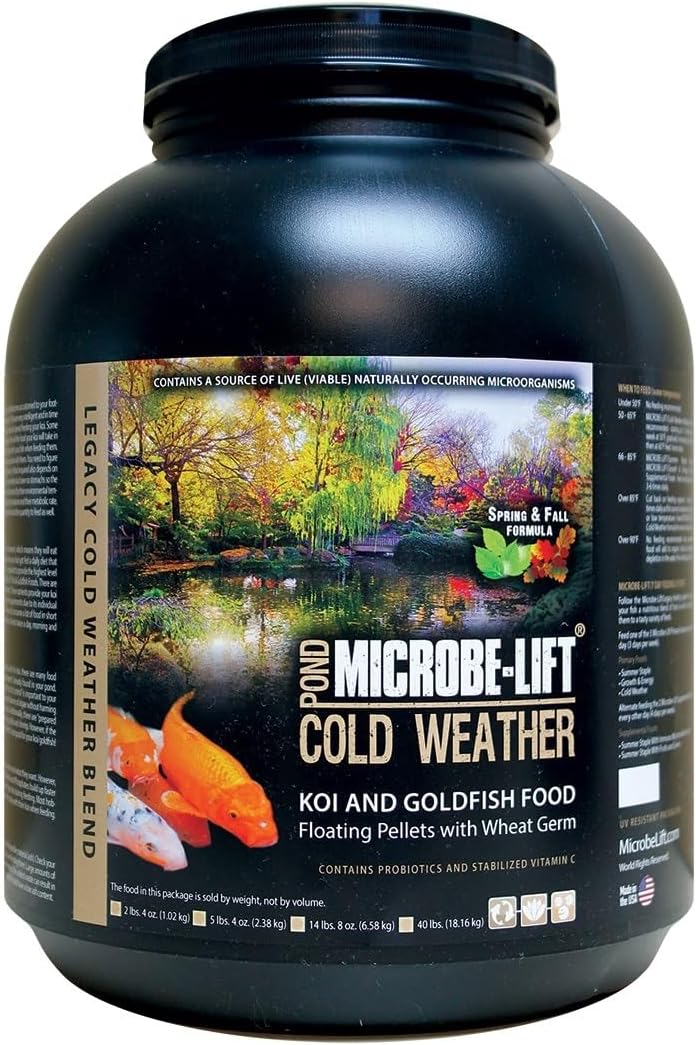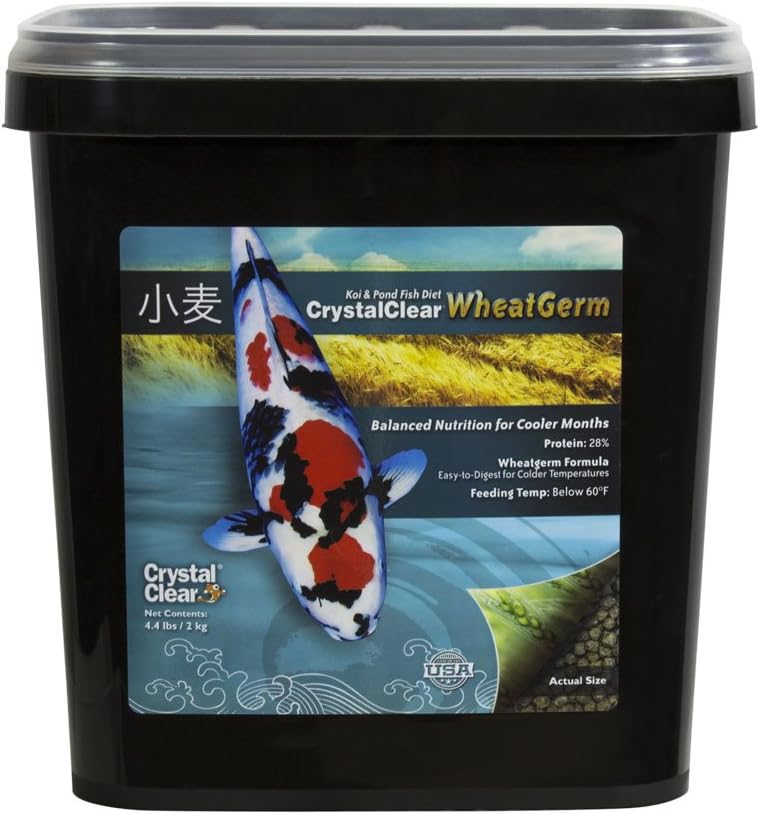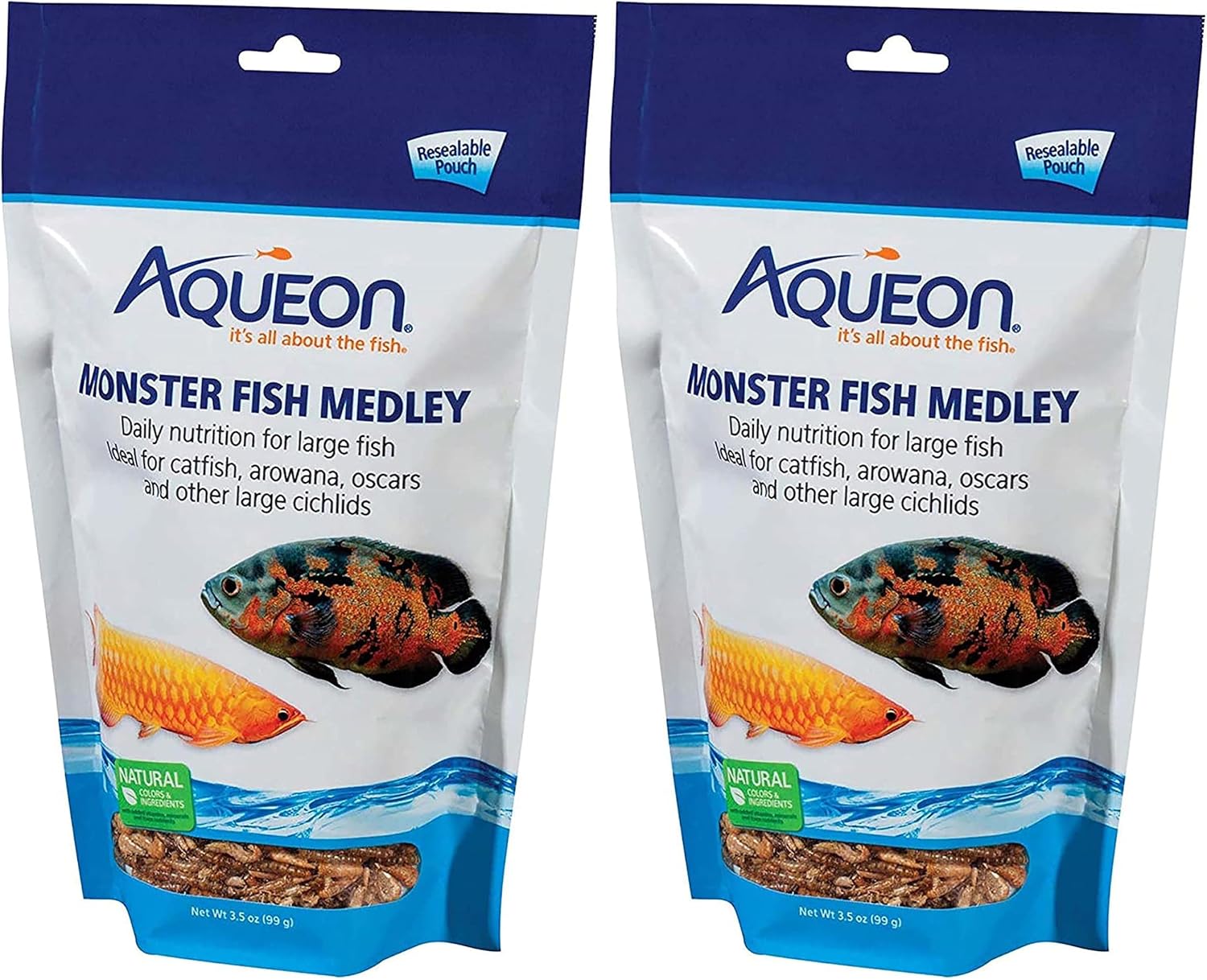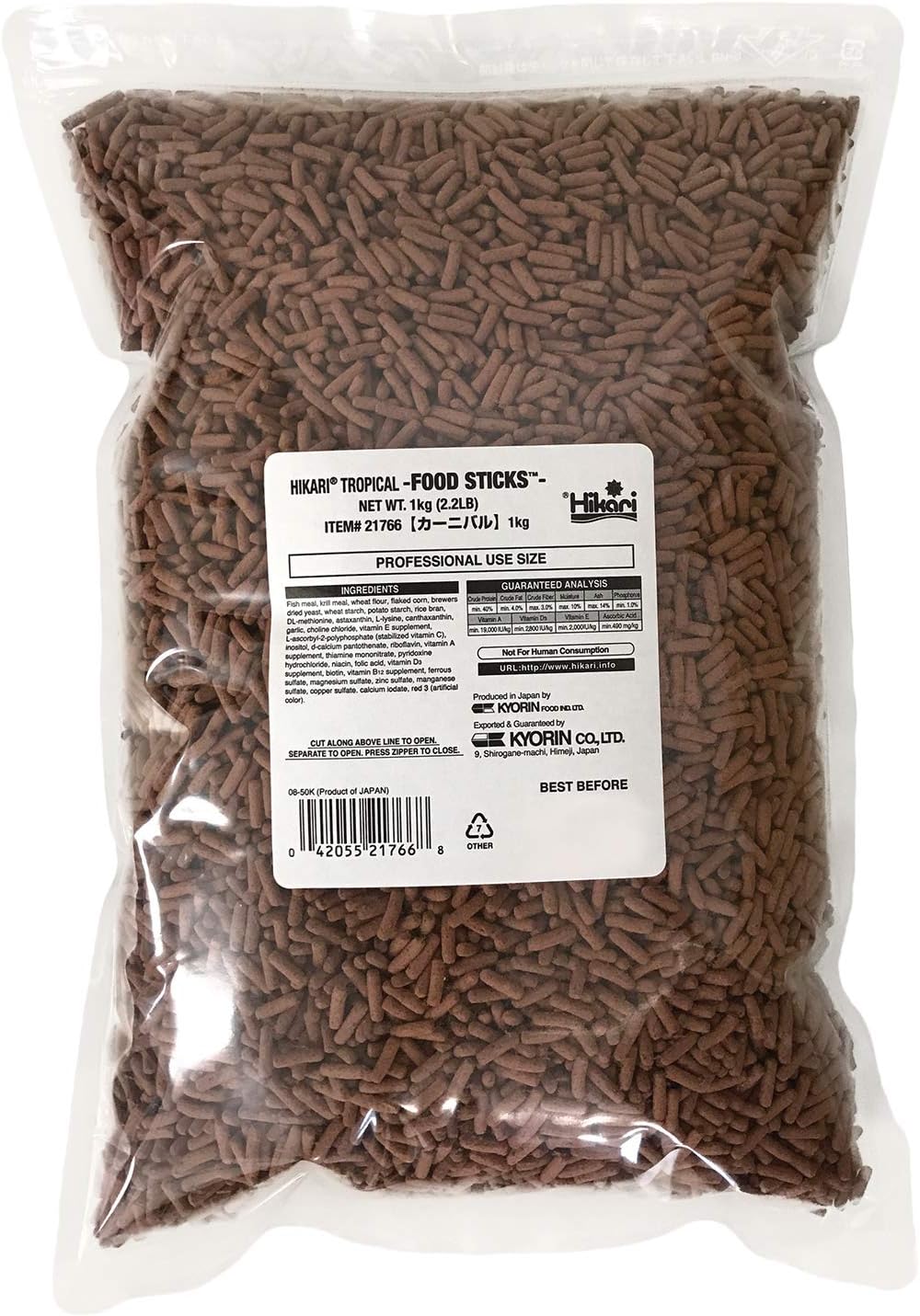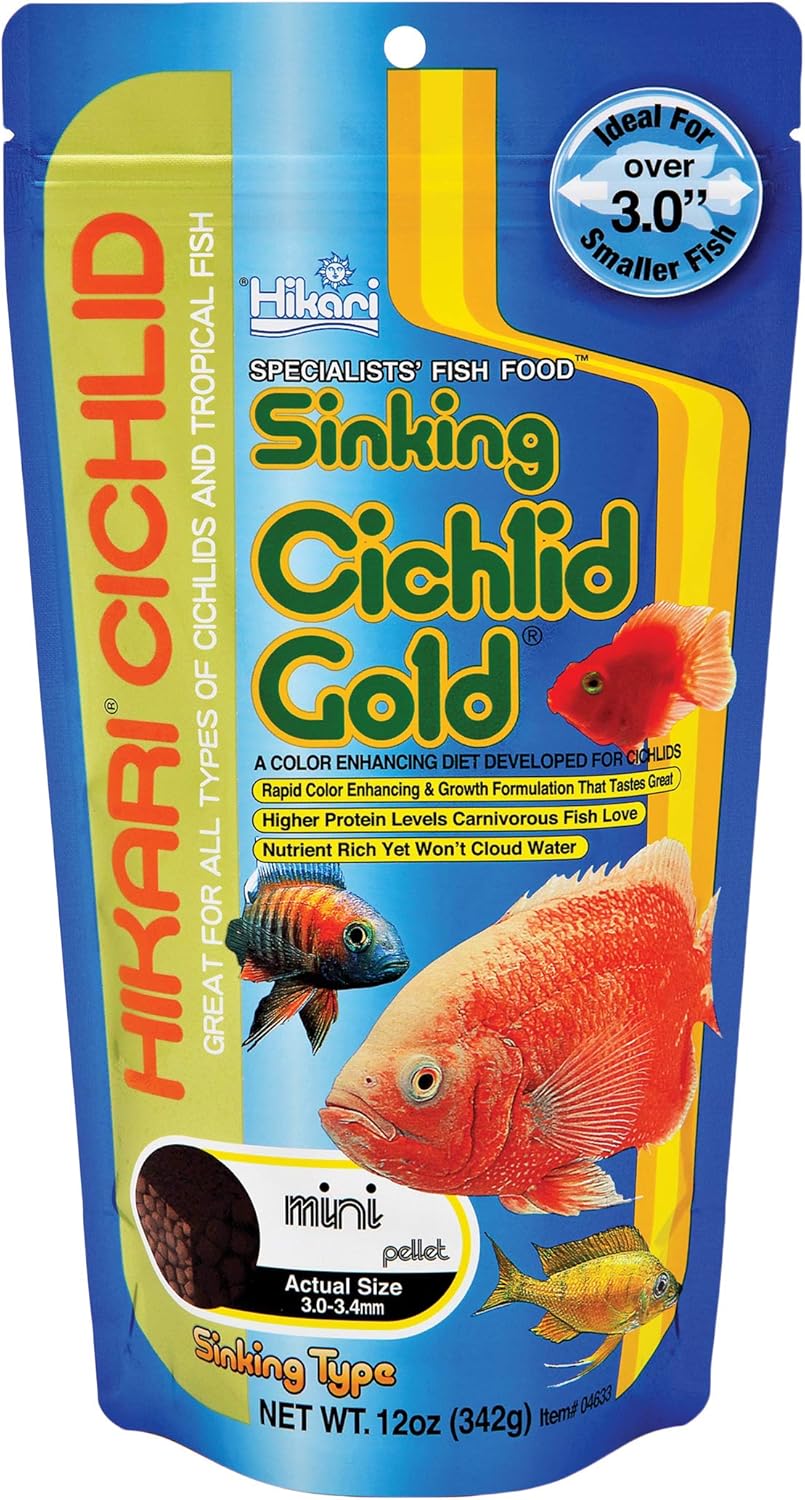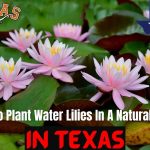Goldfish, with their vibrant colors and graceful swimming, are a popular choice for many pond owners. These ornamental fish can provide beauty and tranquility to any outdoor space.
Yet, one common question that often arises among pond enthusiasts is, “How long can goldfish survive in a pond without being fed?” The answer may surprise you.
First of all, let me clear that, goldfish can survive in a pond without being fed for an extended period. Their natural foraging instincts lead them to consume algae, aquatic insects, and organic matter found within the pond.
Goldfish can also adjust their metabolic rate and rely on stored fat reserves during times of food scarcity. The duration of their survival without feeding depends on factors like pond size, water quality, and seasonal changes.
Larger, well-maintained ponds with stable ecosystems can support goldfish for longer periods. While they are resilient, responsible pond management includes monitoring their health and providing supplemental feeding as needed to ensure their well-being.
5 Best Fish Foods At Cheap Price
How Much Time Can Goldfish Survive In A Pond Without Fed
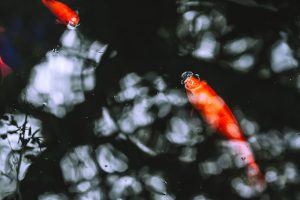
Goldfish can survive in a pond without being fed for an extended period, typically ranging from several weeks to several months, depending on various factors.
These resilient aquatic creatures possess natural survival mechanisms that allow them to endure periods of food scarcity.
Goldfish are opportunistic feeders, often foraging for algae, aquatic insects, small invertebrates, and organic matter within the pond. Their ability to find and consume these natural food sources helps them sustain themselves when supplemental feeding is unavailable.
Furthermore, goldfish can adjust their metabolic rate in response to reduced food availability. During times of scarcity, they slow down their metabolism, conserving energy and utilizing stored fat reserves for sustenance.
The pond’s conditions also play a vital role. Larger ponds with stable ecosystems and sufficient natural food sources can support goldfish for more extended periods. Conversely, overcrowded ponds may deplete resources faster, shortening the time goldfish can survive without feeding.
In summary, goldfish are well-equipped to survive in a pond without being fed due to their natural foraging behavior, metabolic adaptations, and energy reserves.
While they can endure food shortages for a significant duration, responsible pond management includes monitoring their well-being and providing supplemental feeding when necessary to ensure their continued health and vitality.
Gold Fish, Natural Fed, And Their Survival Factors In A Pond
So here are some factors that are related to goldfish survival and natural feeding. These factors will help you to know how long can goldfish go without food.
The Natural Resilience of Goldfish
Goldfish, known scientifically as Carassius auratus, are incredibly resilient creatures. They have been domesticated for centuries, but their wild ancestors originated in East Asia, where they adapted to a wide range of environmental conditions.
This adaptability has endowed them with certain survival instincts that allow them to endure periods of food scarcity.
In a pond, goldfish can subsist for quite some time without additional feeding. This is because they are natural foragers, constantly on the lookout for aquatic insects, algae, and other small organisms that make up their diet.
When placed in a pond environment, goldfish exhibit behaviors that help them find food sources within their habitat.
The Foraging Behavior Of Goldfish
Goldfish are opportunistic feeders, meaning they will eat whatever is available to them. In a pond, they use their keen sense of smell and sight to locate potential food sources. Here are some ways goldfish forage for food in a pond:
Algae Consumption:
Goldfish are known to graze on algae that grow in ponds. Algae provide a natural food source and can sustain goldfish for extended periods.
Aquatic Insects:
Goldfish are skilled at capturing aquatic insects that land on the water’s surface or swim below. These insects are a protein-rich part of their diet.
Bottom-Feeding:
Goldfish also sift through the sediment at the bottom of the pond, searching for small invertebrates and organic matter.
Natural Plankton:
Ponds often contain microscopic organisms like zooplankton, which goldfish can filter from the water as they feed.
Survival Strategies of Goldfish
Goldfish have evolved several survival strategies to endure times of food scarcity in their pond habitats. These strategies include:
Reduced Activity:
During periods of low food availability, goldfish may become less active. This reduced activity conserves energy, allowing them to survive longer without feeding.
Slower Growth:
Goldfish can temporarily slow their growth rate to conserve energy and resources.
Increased Efficiency:
They become more efficient at extracting nutrients from the food they find, ensuring maximum sustenance.
Seasonal Considerations
The ability of goldfish to survive in a pond without being fed can vary throughout the year. Seasonal factors play a significant role:
Spring and Summer:
In the warmer months, ponds typically teem with life, providing goldfish with abundant food. They are more active during this time and can thrive without supplementary feeding.
Fall:
As temperatures start to drop, goldfish may reduce their activity and metabolism. However, there is still a good supply of natural food in the form of remaining algae and insects.
Winter:
Winter poses the greatest challenge for pond-dwelling goldfish. As water temperatures drop significantly, their metabolism slows down, and the availability of natural food sources dwindles.
During this period, goldfish may enter a semi-hibernation state, where they survive primarily on stored fat reserves.
In exceptionally cold regions, pond owners may need to take special precautions to ensure their goldfish’s survival during winter, such as providing a hole in the ice for gas exchange and using pond heaters.
Factors Affecting Goldfish Survival In A Pond
Several factors can influence how long goldfish can survive in a pond without being fed:
Pond Size: Larger ponds tend to have a more stable ecosystem with a greater diversity of food sources, which can support goldfish for a longer duration.
Population Density: Overcrowding can deplete natural food sources more quickly, making it challenging for goldfish to find sustenance.
Water Quality: High-quality water with adequate oxygen levels and minimal pollution is essential for the overall health of goldfish and their ability to find food.
Pond Maintenance: Regular pond maintenance, such as cleaning and algae control, can improve water quality and increase the availability of natural food.
Human Intervention
While goldfish are well-equipped to find natural food sources in a pond, pond owners can still provide supplemental feeding to ensure their fish’s health and vitality. However, it’s crucial to strike a balance.
Overfeeding can lead to water quality issues and obesity in goldfish. When providing supplemental food, choose high-quality fish food pellets and feed in moderation, adjusting the quantity based on the fish’s behavior and the water temperature.
Frequently Asked Questions
Q: What is the natural diet of goldfish in a pond environment?
A: In a pond, goldfish primarily feed on algae, aquatic plants, insects, and small invertebrates. Their natural diet is omnivorous, with a focus on plant matter and protein-rich aquatic organisms found within the pond’s ecosystem.
Q: Do goldfish have adaptations that help them find food in ponds without human feeding?
A: Yes, goldfish have several adaptations that aid them in finding food in ponds without human feeding. They possess keen senses, such as sight and smell, to locate natural food sources like algae, insects, and small invertebrates.
Goldfish also adjust their metabolism and activity levels during times of food scarcity, conserving energy and relying on stored fat reserves, making them well-suited to survive in pond environments with limited external food sources.
Q: How do seasonal changes affect the food availability for goldfish in ponds?
A: Seasonal changes significantly impact food availability for goldfish in ponds. During spring and summer, ponds offer abundant natural food sources, with increased insect activity and algae growth. In fall, food availability starts to decline.
In winter, cold temperatures reduce metabolic activity, leading goldfish to rely on stored energy reserves due to scarce natural food.
Q: What role do other organisms in the pond ecosystem play in providing food for goldfish?
A: Other organisms in the pond ecosystem play a vital role in providing food for goldfish. They contribute to the goldfish diet by serving as a source of natural prey, including insects, aquatic invertebrates, and microscopic organisms like zooplankton.
Q: Are goldfish more likely to survive in larger ponds with a larger natural food supply?
A: Yes, goldfish are more likely to survive in larger ponds with a larger natural food supply. Larger ponds generally sustain a more stable ecosystem with a greater diversity of food sources.
Q: What are the potential consequences of overfeeding goldfish in a pond?
A: Overfeeding goldfish in a pond can lead to several consequences, including water pollution from excess uneaten food, deteriorating water quality, algal blooms, and increased ammonia levels. Additionally, it can cause obesity and health issues for the goldfish, affecting their overall well-being.
Q: Can goldfish survive in a pond if it becomes overcrowded with their own species or other fish?
A: Goldfish can struggle to survive in overcrowded ponds due to increased competition for food, limited space, and heightened stress levels. Overcrowding can deplete natural food sources faster, potentially leading to malnutrition and reduced overall health for the goldfish.
Q: How does water quality impact the ability of goldfish to find and consume natural food in a pond?
A: Water quality significantly affects goldfish’s ability to find and consume natural food in a pond. Poor water quality can reduce the availability of food sources, impact their health, and decrease their foraging efficiency.
Q: Are there specific strategies pond owners can use to support goldfish survival without supplemental feeding?
A: Yes, pond owners can support goldfish survival without supplemental feeding by maintaining a healthy pond ecosystem, providing adequate habitat and shelter, and ensuring proper pond care, including regular water quality maintenance and avoiding overstocking.
Final Words
In conclusion, goldfish are remarkably adaptable and can survive in a pond without being fed for extended periods. Their natural foraging behaviors and ability to adjust their metabolism and activity levels help them endure times of food scarcity.
Nevertheless, pond owners should remain attentive to the changing seasons and the specific conditions in their ponds to ensure the health and longevity of their beloved goldfish.
While goldfish can fend for themselves to some extent, responsible care and occasional feeding can go a long way in supporting their well-being in a pond environment.


